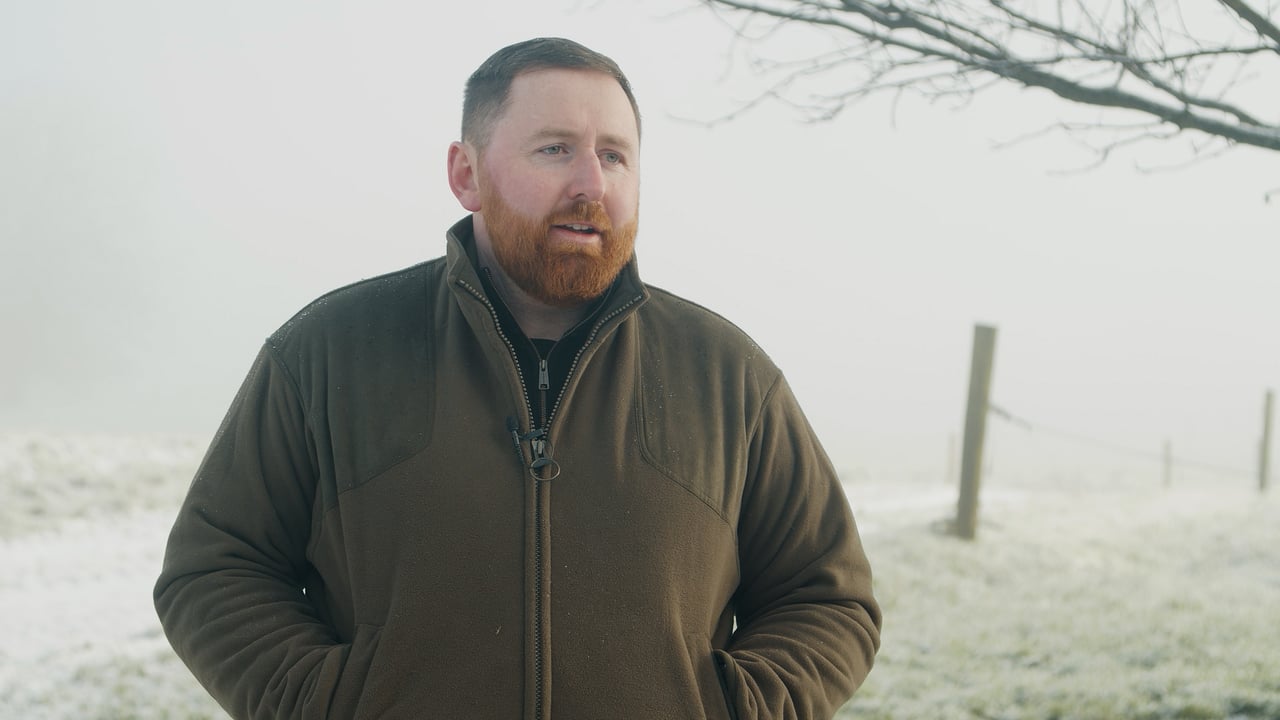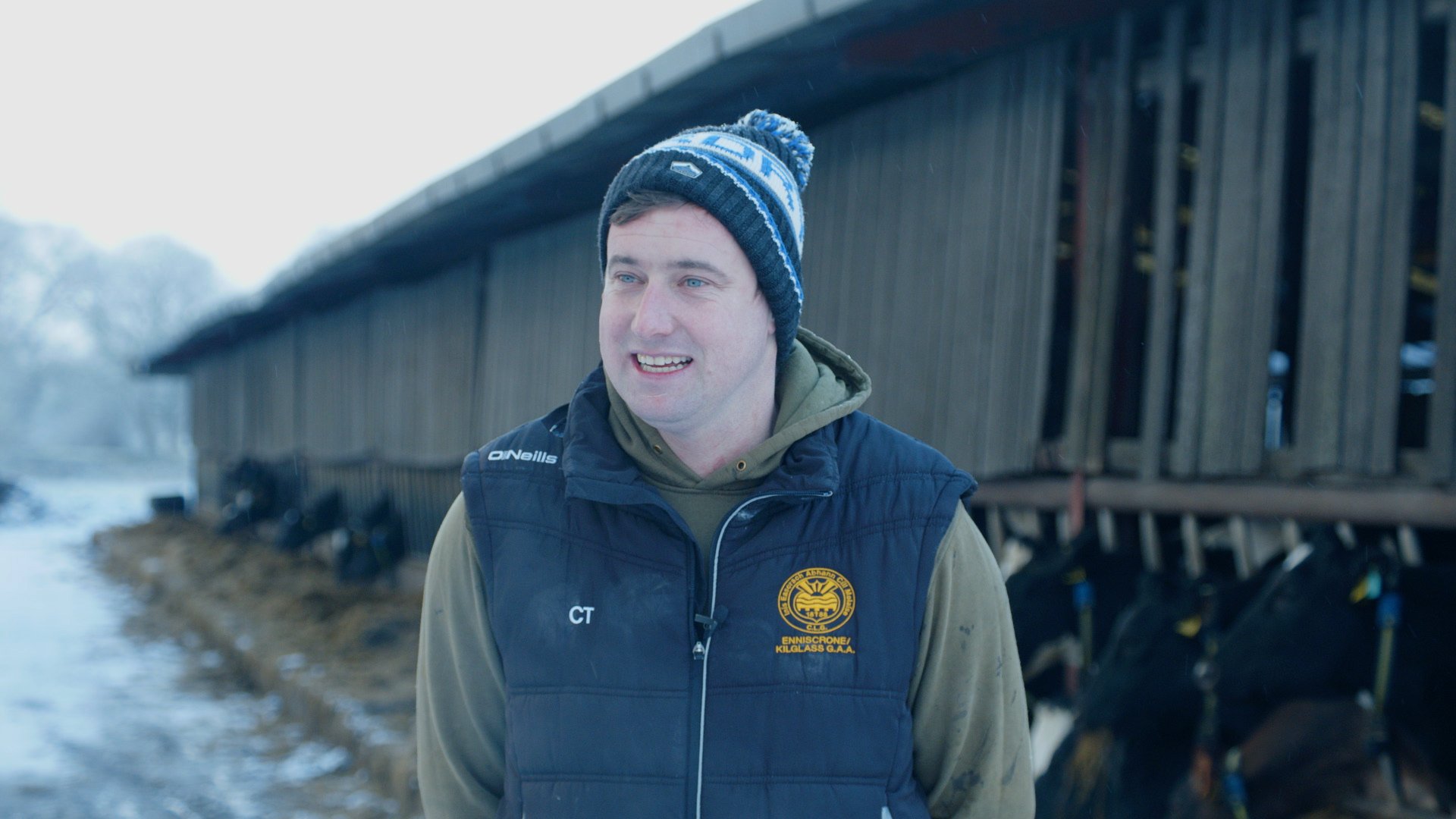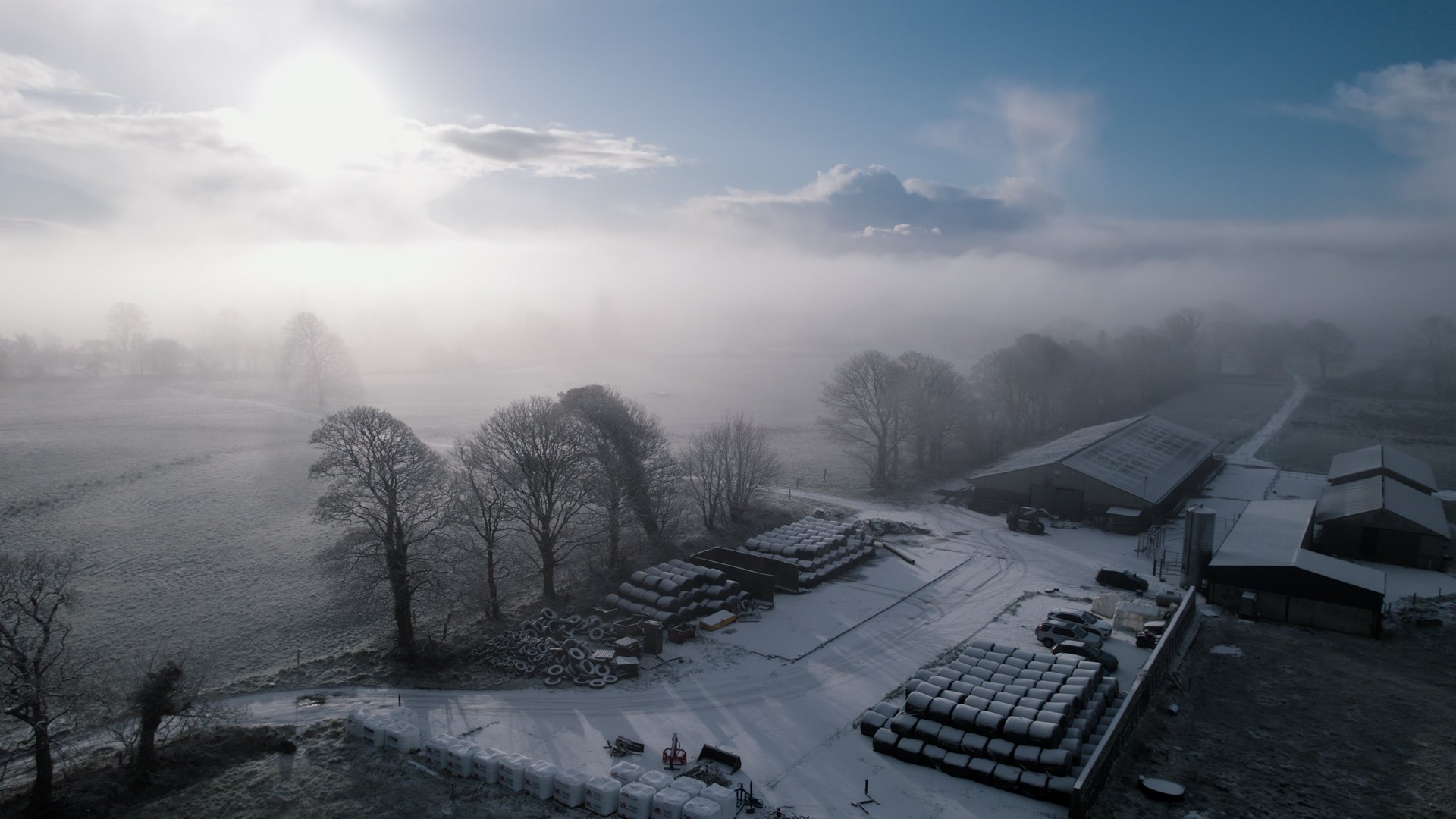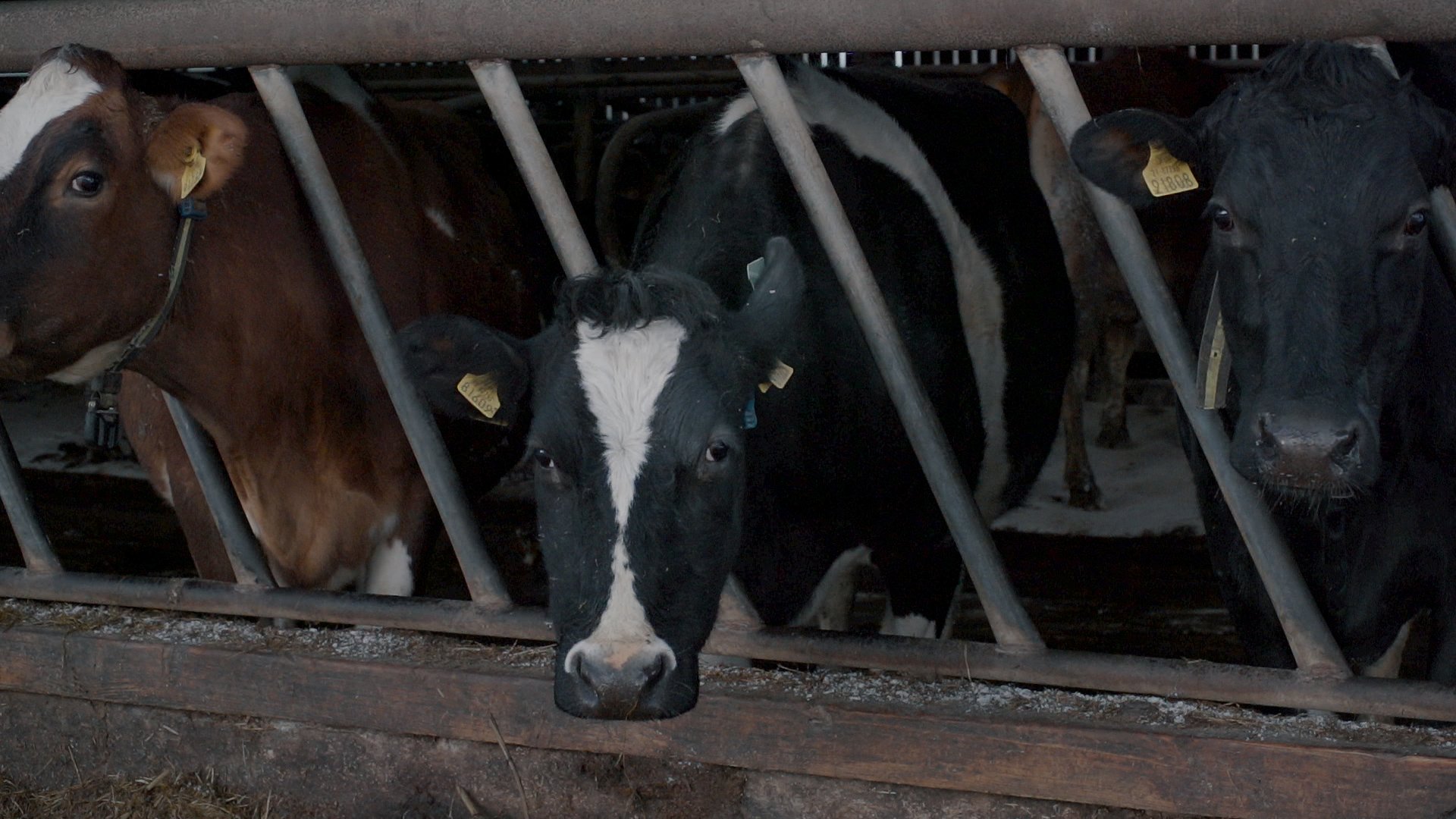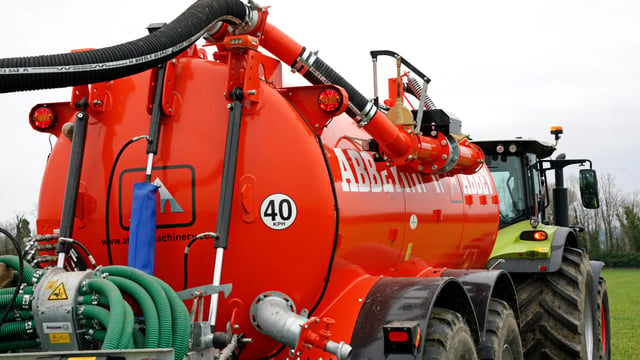Sponsored Article
Sponsored Article
George Goes Dairy Farming: Season 4 kicks off in Sligo
Sponsored Article
‘George Goes Dairy Farming’ is coming back to your screens with a fourth season. This innovative, farm-focused series is proudly brought to you by Agriland Media, Progressive Genetics and AgriNet HerdApp, Ireland's leading farm management software.
The George Goes Dairy Farming video series has provided unique insights into the management practices adopted by milk producers across the entire gamut of dairy farming business models implemented in Ireland.
All have been widely recognised for their focus on the clear communication of new thinking within the dairy sector, and their role in providing possible learning opportunities for Irish dairy farmers.
The latest production is a further, invaluable reference point for anyone with an interest in modern milk production systems.
In the first episode of the new season, Co. Wicklow-based farmer George Beattie is in the 'Yeats county’ to visit the farm of FBD Young Farmer of the Year, Christopher Tuffy.
Christopher farms in partnership with his parents and his partner Eimear, with whom he has one baby; Iarlaith.
He is currently farming 150ac of leased land, along with the home farm that is used for silage and youngstock, and is milking 155 spring-calving cows.
Christopher comes from a dairy farm near Enniscrone, Co. Sligo, where his father milked 60 cows in a liquid milk system.
After completing the dairy herd management course at Kildalton Agricultural college, the young farmer decided to head to New Zealand. Then, on his return, he set out to farm on his own.
Christopher took over the lease on the land in 2011 and developed it into a dairy block and started milking in 2012 with 96 cows.
In the last ten years on the farm, herd performance has improved dramatically, with it currently producing around 500kg of milk solids at 3.84% protein and 4.81% fat.
Commenting on the breeding policy on the farm and the use of sexed semen, Christopher said: "No cow under a €162, EBI (Economic Breeding Index) will be carrying a dairy straw.
"We are not going to breed off any cow that is lower than 3.75% protein and we're not breeding off any cow with a low milk sub-index.
"Two or three years ago everything in the herd was getting a dairy straw, whereas now it's only the top cows that will be bred off and we will use the DBI (Dairy Beef Index) to pick the best beef bulls for our herd to maximise our beef calf."
Outlining the tools he uses on the farm to select the best cows to breed off, he said: "My father started milk recording in the mid-90s and we haven't missed a year since.
"Milk recording is massive tool we use here, it is essential, it is non negotiable at this stage - for cell counts, protein, fat, you have everything detailed you need on every cow in your herd.
"It is so important to know your worst cows, as much as it is to know your best cows.
"We are 100% AI (artificial insemination). We don't have bulls around the place, so we can pick the genetics for our herd and get very quick genetic gain."
Christopher then outlined a number of bulls from Progressive Genetics that have worked well for him over the years. These are:
- Doonmanagh Seville;
- Kilfeacle Pivotal;
- Lauragh Evert (LHZ);
- Crefogue Spider.
He noted that the focus has always been on breeding a cow that is fertile first and foremost, along with a cow that has good percentages and produces good levels of milk solids.
John Griffith, a breeding advisor with Progressive Genetics, spoke about the changes he has seen in Christopher's herd since he first began working with him ten years ago.
Griffith said that Christopher's herd produces around 500kg of milk solids/year, which is 74kg ahead of the average for the west of Ireland at 426kg milk solids.
Commenting, Griffith said: "That extra 74kg of milk solids for a typical farm in the west of Ireland milking 90 cows equates to about €40,000 in extra milk sales.
"The panel of bulls that he was picking when I first landed to now has changed. That is due to the herd increasing in profits and the traits Christopher is going after now.
"The success of this farm is based on obviously excellent management and the right genetics," he added.
Sexed semen is going to play a pivotal role in the breeding programme on the majority of Irish dairy farms going forward.
Christopher will be using sexed semen and plans to use it on all the replacement heifers and then the best cows.
But the use of sexed semen means that more beef straws can be used on cows, and when asked about what beef sires he uses on his cows, Christopher said: "The Friesian-type cows are getting either an Angus or a Hereford sire."
He said that the Angus bull Intelagri Maverick, a Progressive Genetics sire, is a bull that he has used on a lot of his cows.
Christopher said that the more crossbreed-type cows are getting more continental-type sires, such as Limousin sires to improve carcass weight.
He is currently picking bulls based off the DBI and noted the importance of using this tool going forward to maximise calf value - while not compromising calving difficulty.
Christopher has been using AgriNet HerdApp on the farm for the past three years.
"I absolutely love the app, having the information to hand is brilliant. It's so compact, it is so easy to use, the home screen is clear," he said.
AgriNet HerdApp is Ireland's leading farm management tool, that allows farmers to manage all the key day-to-day functions on a typical Irish dairy or beef farm, empowering farmers to make the right management decisions for more profitable dairy farming.
It allows Christopher to register calves, apply for movement permits, record inseminations and drug usage and to have complete oversight on his entire herd. It is fully Bord Bia compliant and eliminates the need for unnecessary paperwork as all of Christopher's herd's information is stored on the app.
Christopher loves the fact that he can look at each individual profile on the app and get all necessary information, such a production, sire and dam.
"It is one of the most-used apps on my phone," he said.
Start your 30 day free trial today by visiting www.agrinet.ie
When asked about his outlook for the sector in the future, Christopher said: "I have always said it is a very good industry to be in. There are huge challenges, but I think there are huge opportunities too in agriculture.
"I am very optimistic about the future, as long as you can make a good living for your family and do a job everyday that you love.
"I'm lucky enough I love milking cows, I love farming and I think that's a great place to be. I don't think we will have any issue with what is coming down the line, at the moment."
All previous episodes of George Goes Dairy Farming can be viewed on the Agriland website.
Catch up on all the episodes from series three here:
Part 1: 'George goes dairy farming': 18 All-Ireland wins and 225 cows in Co. Cork
Part 2: 'George goes dairy farming': From first-time to full-time farming
Catch up on all the episodes from series two here:
Part 1: ‘George goes dairy farming’: 1 couple; 2 farms; 3 kids; and 750 cows
Part 2: ‘George goes dairy farming’: Changing the game with sexed semen
Part 3: ‘George goes dairy farming’: Winning in Wexford with heifer synchronisation programme
Part 4: ‘George goes dairy farming’: Achieving 38.4cpl and 3.94% protein with black & whites
Part 5: ‘George goes dairy farming’: From a Co. Louth dairy farm to the European Parliament
Catch up on all the episodes from series one here:
Part 1: ‘George goes dairy farming’: ‘We’ll go another row and see how we go; the land is there’
Part 2: ‘George goes dairy farming’: Using 50% Belgian Blue genetics in Co. Meath
Part 3: ‘George goes dairy farming’: Attention turns to breeding in Co. Meath and Co. Wexford
Part 4: ‘George goes dairy farming’: The right number of cows for the system in Co. Wexford
Part 5: ‘George goes dairy farming’: Calving down 200 cows in just 4 weeks in Co. Wexford
Part 6: ‘George goes dairy farming’: Tagging calves and a date with a spring-calving Meath farmer
Part 7: ‘George goes dairy farming’: Which system works best and why?
For more information on AgriNet HerdApp, just click here.
Additionally, for more information on Progressive Genetics, click here.
Sponsored Article

